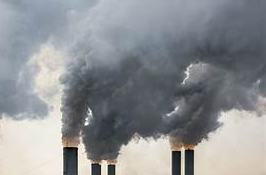Global energy transition expenses are steep, but the price of inaction could prove catastrophic.
SINGAPORE – The cost of transitioning away from fossil fuels was a focal point during the Singapore International Energy Week (Oct 21–25), yet the greater danger lies in neglecting climate action altogether.
While fossil fuels have long powered economies, the shift to cleaner energy is a massive financial undertaking. For example, Singapore announced conditional approval for a US$24 billion project to import solar energy from Australia via a 4,000km undersea cable network.
Additionally, grid infrastructure upgrades are crucial for reliable energy transfer from diverse sources like solar farms in Australia or hydropower plants in Laos. Such changes demand extensive investments, which some leaders argue are prohibitive for developing nations.
The Costs of Inaction
However, focusing solely on upfront costs overlooks the escalating financial and human toll of climate inaction. Recent global disasters underscore this reality:
In Nepal, monsoon floods and landslides in September claimed over 200 lives and caused at least US$127 million in damages.
In the Philippines, Tropical Storm Trami displaced 150,000 people, resulting in S$6.5 million in damage to agriculture and infrastructure.
For Singapore, the risks are particularly acute. Despite contributing only 0.1% of global emissions, the nation is vulnerable to:
Sea-level rise threatening coastal areas.
Extreme heat increasing health risks.
Food security issues caused by regional climate events, such as Malaysia’s 2023 floods that disrupted vegetable supplies and raised food prices.
The UN Environment Programme warns current climate policies could lead to a 3.1°C global temperature rise by 2100, far exceeding the 1.5°C Paris Agreement goal.
Economic Risks of Falling Behind
Beyond environmental impacts, failure to decarbonize could jeopardize Singapore’s economic competitiveness. Carbon taxes are increasing globally, and companies committed to renewable energy goals – such as Apple and Google under the RE100 initiative – may reconsider operating in Singapore if clean energy remains unavailable.
Singapore’s carbon tax rate, which rose to $25 per tonne in 2024, will increase to $45 per tonne by 2026, potentially reaching $80 per tonne by 2030.
The Benefits of Action
The energy transition offers significant long-term benefits, including:
Job creation in the clean energy sector.
Reduced air pollution, improving public health.
Economic growth through investments like the ASEAN Power Grid, projected to deliver US$1.4 trillion in cumulative investments and boost manufacturing for solar panels, batteries, and infrastructure.
The Final Verdict
As Dr. David Broadstock, energy transition research lead at the NUS Sustainable and Green Finance Institute, aptly stated:
“The cost of action may seem uncomfortable in the near term, but the cost of inaction is untenable in the long term.”
The question is no longer whether the energy transition is affordable, but whether the world can afford not to act.


